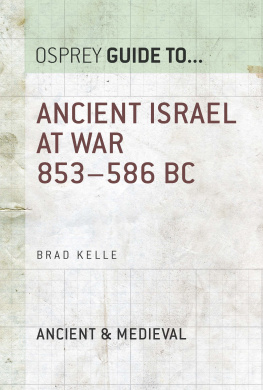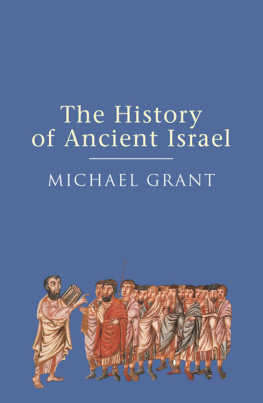
This is a diplomatic history like no other. Emmanuel Navon takes us through the whole of the Jewish experience, from remotest antiquity to the present, drawing out the beliefs and events that explain Israels approach to foreign states and world powers today. If Israel is to flourish, even survive, it will have to learn the lessons this unique book teaches about the past. A tour de force.
Martin Kramer, chair of Middle Eastern and Islamic studies, Shalem College
Emmanuel Navons far-ranging work on Israeli and Jewish diplomacy through the centuries helps us better appreciate the political and moral implications of Israeli efforts to win acceptance among the nations.
Yossi Klein Halevi, senior fellow, Shalom Hartman Institute, and author of Letters to My Palestinian Neighbor
The underdeveloped field of Jewish political studies has much to gain from Emmanuel Navons ambitious, authoritative survey of Jewish diplomatic history from biblical origins to Israels latest oil and gas treaties. As well as providing reliable and firm guidance through minefields of explosive national history, the book develops a level-headed concept of modern Israeli foreign policy. It is a good read and a lasting resource.
Ruth Wisse, emeritus professor of comparative literature, Harvard University
With encyclopedic breadth this important, timely, and insightful book provides an extraordinary account of Israels determination to survive and flourish against all odds. It is a fascinating chronicle of both great events and individuals, from Jacob, Moses, and Jeremiah to Disraeli, Churchill, Ben Gurion, Kissinger, Golda Meir, Rabin, and Netanyahu.
Hillel Neuer, executive director, UN Watch
Devoid of jargon and rhetoric, Navon paints a fascinating overarching picture of Israels trials and tribulations in the journey toward normalization and acceptance among the comity of nations.
P. R. Kumaraswamy, professor of Middle Eastern studies, Jawaharlal Nehru University, New Delhi
The Star and the Scepter offers deep insight about how faith, history, and profound determination shape the unique diplomatic history of the Jewish people and the nation of Israel. Emmanuel Navon convincingly argues that Israels foreign policy is best understood in the light of history and faith, which he masterfully analyzes. I highly recommend The Star and the Scepter to those passionate about Israel, the Jewish people, and contemporary diplomacy in the Middle East.
Kenneth Weinstein, president, Hudson Institute
The Star and the Scepter
A Diplomatic History of Israel
Emmanuel Navon

The Jewish Publication Society | Philadelphia
University of Nebraska Press | Lincoln
2020 by Emmanuel Navon.
Cover designed by University of Nebraska Press; cover image: the flag of Israel is flown at UN headquarters for the first time, New York, May 12, 1949. UN Photo.
Author photo Reuven Kopitchinski.
All rights reserved. Published by the University of Nebraska Press as a Jewish Publication Society book.
Library of Congress Cataloging-in-Publication Data
Names: Navon, Emmanuel, author.
Title: The star and the scepter : a diplomatic history of Israel / Emmanuel Navon, the Jewish Publication Society, Philadelphia.
Description: Lincoln: University of Nebraska Press, [2020] | Includes bibliographical references and index. | Summary: The first all-encompassing book on Israels foreign policy and the diplomatic history of the Jewish people, The Star and the Scepter retraces and explains the Jews interactions with other nations from the ancient kingdoms of Israel to modernityProvided by publisher.
Identifiers: LCCN 2020001888
ISBN 9780827615069 (hardback)
ISBN 9780827618589 (epub)
ISBN 9780827618596 (mobi)
ISBN 9780827618602 (pdf)
Subjects: LCSH : IsraelForeign relations. | Arab-Israeli conflict. | JewsHistory.
Classification: LCC DS119.6 .N375 2020 | DDC 327.5694dc23
LC record available at https://lccn.loc.gov/2020001888
The publisher does not have any control over and does not assume any responsibility for author or third-party websites or their content.
In memory of my grandparents,
Joseph & Jamila (ne Levy) Mrjen and
Claude & Jacqueline (ne Weinberg) Blum,
and of my mother, Martine Blum
A star rises from Jacob, a scepter comes forth from Israel.
Numbers 24:17
Man is immortal; his salvation is hereafter. The state has no immortality; its salvation is now or never.
Cardinal de Richelieu
Contents
This book originated in a class on Israels foreign policy, which I have been teaching for many years at Tel Aviv University ( TAU ) and at the Interdisciplinary Center Herzliya ( IDC ). I owe special thanks to colleagues who have given me the opportunity to teach at those prestigious institutions: Prof. Aharon Klieman, Prof. Yossi Shain, and Prof. Azar Gat for TAU ; Dr. Lesley Terris, Prof. Boaz Ganor, and Dr. Amichai Magen for IDC . I also extend anonymous but heartfelt thanks to the countless students whose feedback, questions, and constructive criticism have refined my teaching and, as a result, the quality of this book.
I am thankful to Yossi Klein Halevi for suggesting The Jewish Publication Society (JPS) as a publisher, to JPS director Rabbi Barry Schwartz for being forthcoming, and to the University of Nebraska Press ( UNP ) for copublishing this volume.
I also wish to thank the people who have helped improve the original manuscript: Prof. Sasson Sofer, Prof. Aharon Klieman, and Rabbi Barry Schwartz for their useful feedback and suggestions; Channah Koppel for her meticulous proofing of the first draft; JPS managing editor Joy Weinberg for her rigorous and diligent editing; UNP editor Ann Baker; and copyeditor Debra Hirsch Corman for polishing and fine-tuning the final version of the book.
My ultimate thanks go to my beloved wife, Sima, without whom none of my endeavors and achievementincluding this bookwould be possible.
Eighteenth-century Genevan philosopher Jean-Jacques Rousseau expressed thus his bewilderment at Jewish history:
The Jews provide us with an astonishing spectacle.... Athens, Sparta, Rome have perished and no longer have children left on earth; Zion, destroyed, has not lost its children.... What must be the strength of legislation capable of working such wonders, capable of braving conquests, dispersions, revolutions, exiles, capable of surviving the customs, laws, empire of all the nations... to last as long as the world?... Any man whosoever he is, must acknowledge this as a unique marvel, the causes of which, divine or human, certainly deserve the study and admiration of the sages.
This book follows Rousseaus advice by studying the diplomatic history of the Jewish people. It retraces and explains the Jews interactions with other nations from the ancient Kingdom of Israel to the modern State of Israel today.
Such an endeavor is as ambitious as it is necessary. Books on Israels foreign policy understandably begin with Israels independence in 1948, but in doing so they have lacked the wider perspective of Jewish history. They have also tended to focus exclusively on certain aspects of Israels foreign policy, most typically the Arab-Israeli conflict or the U.S.-Israel relationship. Seven decades after Israels independence, an updated and comprehensive account of Israels foreign policy was missing. The present book was written to fill that void.
Next page










